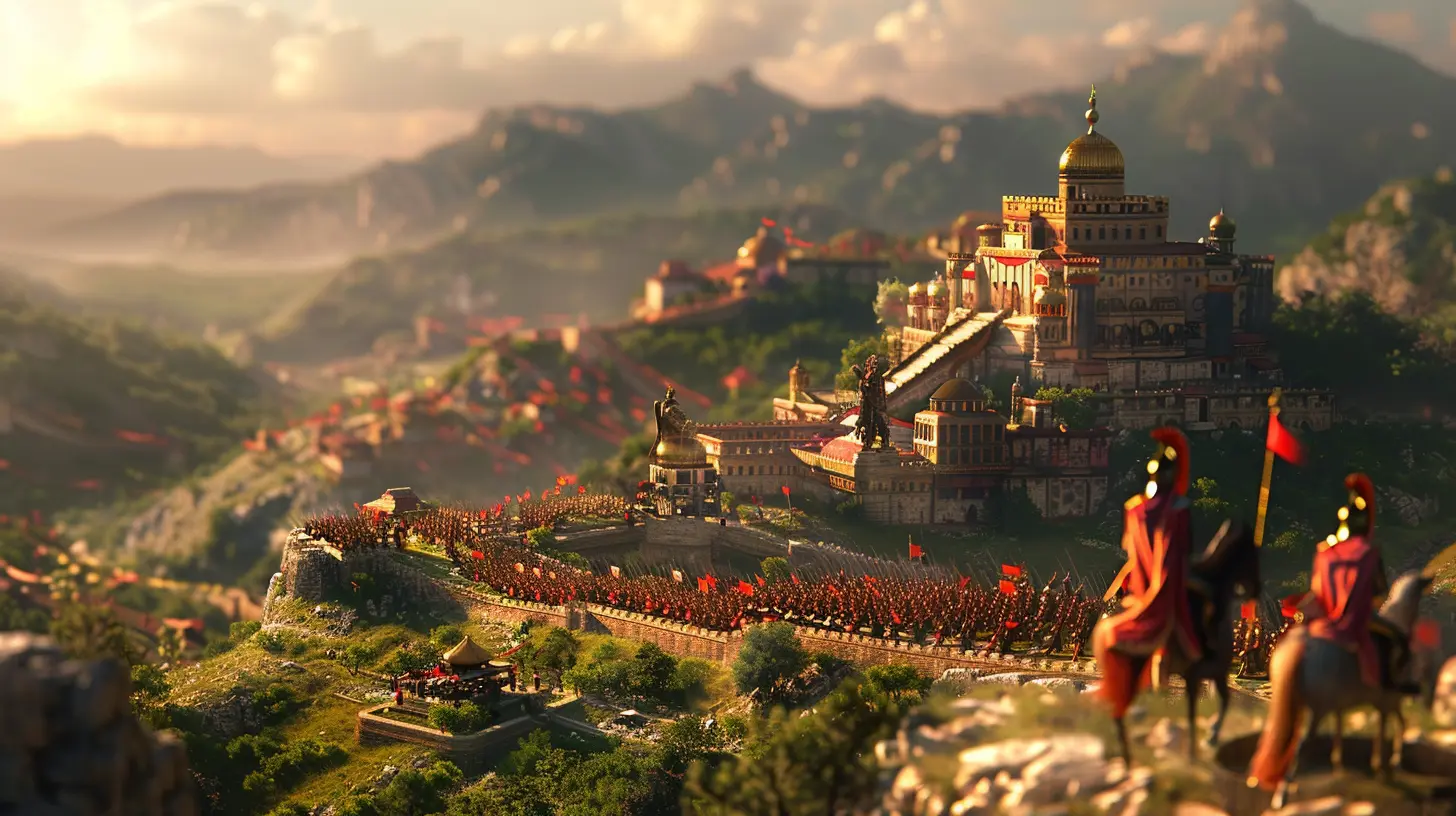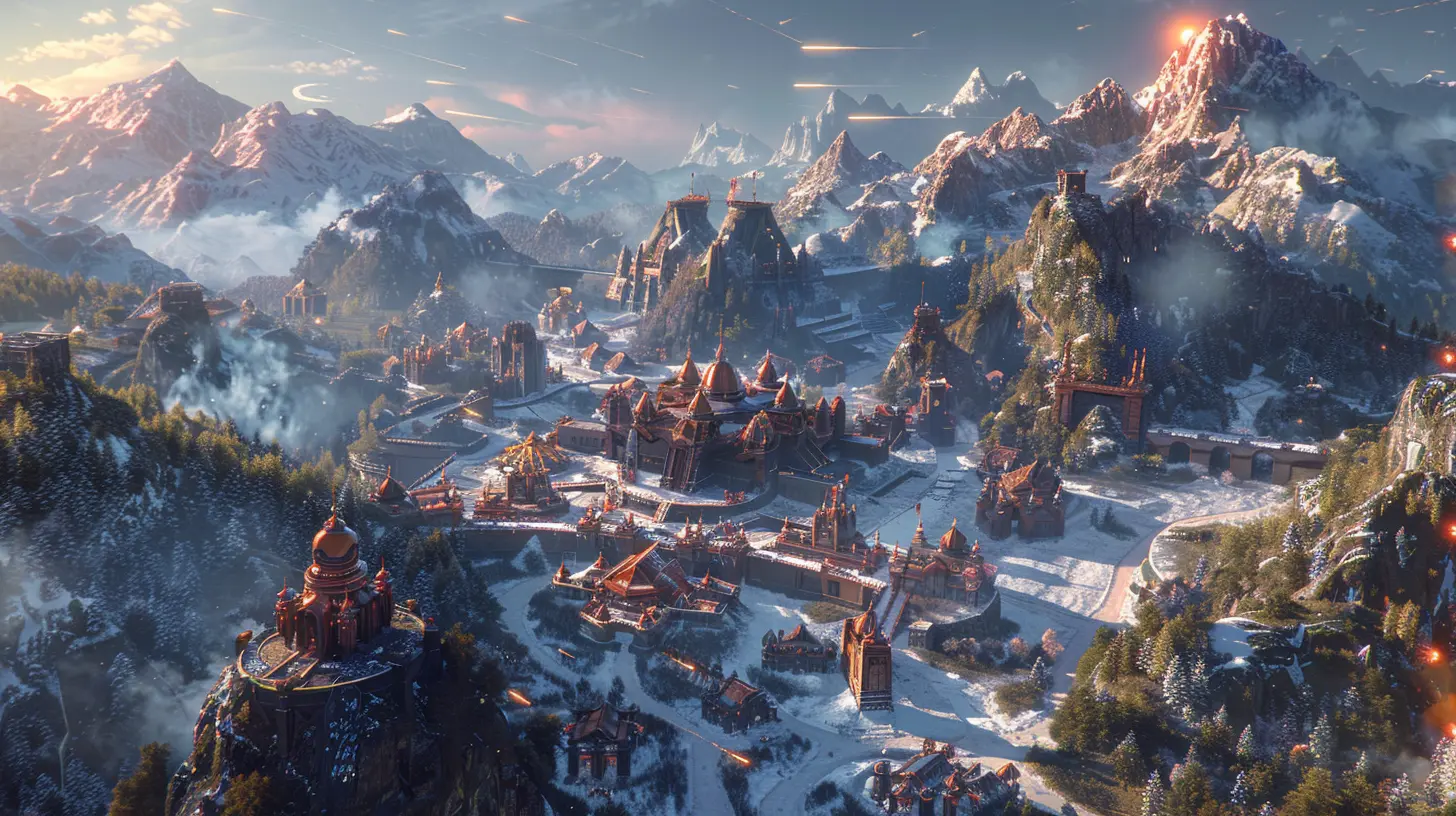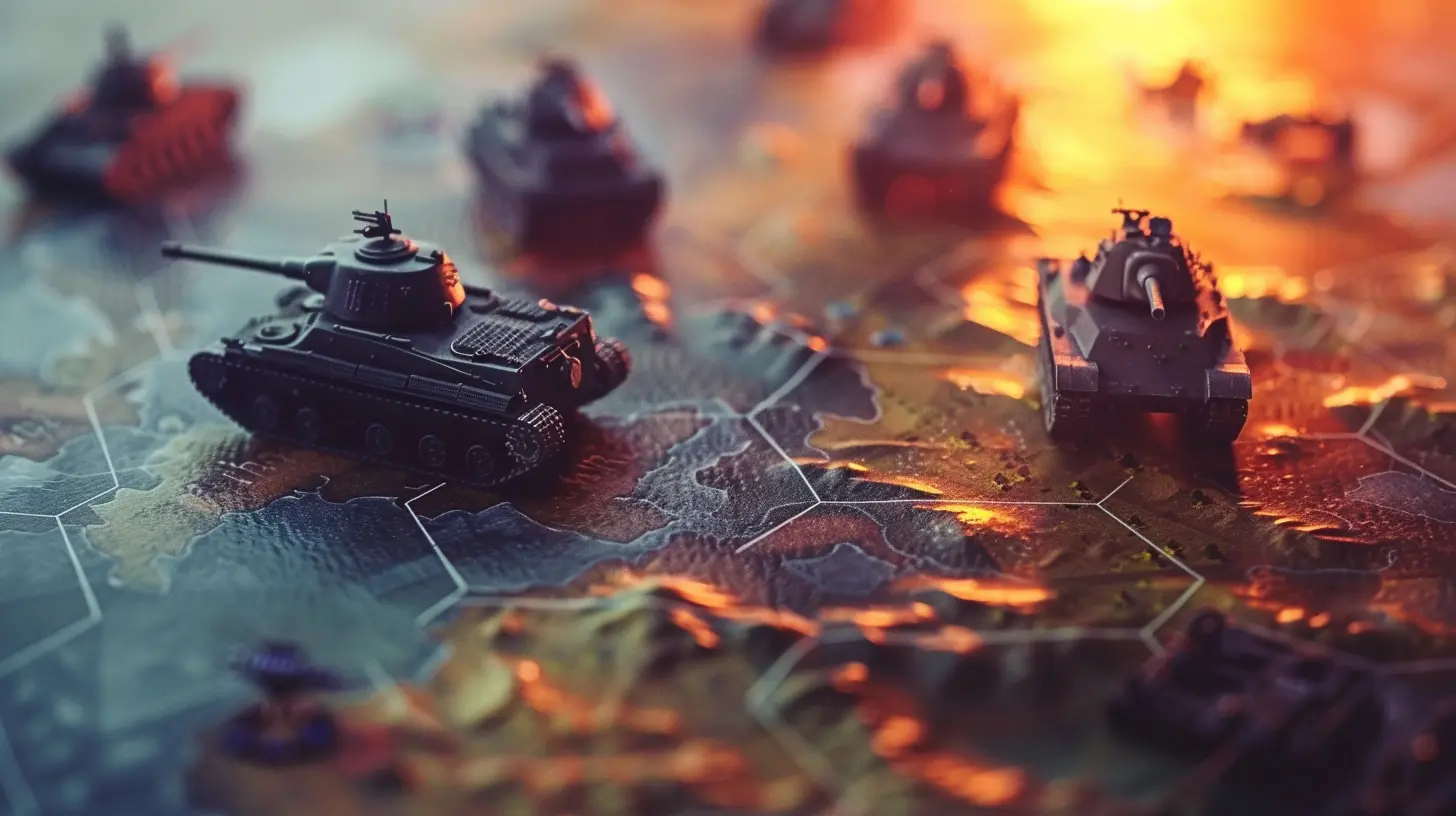The Evolution of AI in Strategy Games: How It’s Changing the Way We Play
11 July 2025
Video games have come a long way since the days of Pong and Tetris. From those humble beginnings, strategy games especially have evolved dramatically, offering players richer narratives, more complex mechanics, and, most impressively, smarter opponents. At the heart of this transformation is artificial intelligence (AI). Gone are the days when we could predict every enemy move like clockwork; AI has become a game changer—pun very much intended. But how exactly has AI reshaped strategy games, and what does it mean for gamers like us? Let’s dive into the details.
The Early Days of AI in Strategy Games: Simple and Predictable
To understand where we are now, we need to rewind the clock a bit. AI in early strategy games, like Chessmaster 2000 or even Warcraft: Orcs & Humans, was, well, simple. You could almost feel the mechanical nature of enemy moves. They followed pre-programmed scripts and if-then logic trees that made their behavior both predictable and repetitive.Remember playing games where the AI would always send the same type of units to attack your base at the same intervals? It felt like you were playing against a wind-up toy. Sure, it was fun at the time, but let’s be honest: once you figured out the pattern, the challenge was gone.
The Turning Point: Machine Learning and Adaptive AI
Then something magical happened. Developers started using more advanced algorithms and machine learning techniques to create AI that wasn’t just reactive but adaptive. Suddenly, AI opponents began to feel… well, alive. They started learning from your actions, countering your strategies, and even making you second-guess your next move.Take Total War: Shogun 2, for instance. This game introduced AI that could adapt to your playstyle. If you repeatedly relied on cavalry charges, the AI started to fortify its defenses against cavalry. It wasn’t perfect (you could still cheese your way to victory with enough effort), but it was a massive leap forward.
And then there’s Civilization VI. The AI leaders have unique personalities that dictate their strategies, making every game feel fresh. Gandhi might still nuke you (some traditions never die), but the way his AI handles diplomacy and war feels more nuanced than ever before.
AI in Real-Time Strategy vs Turn-Based Strategy: Two Different Beasts
Let’s take a moment to appreciate the challenge developers face when implementing AI in different types of strategy games. Real-time strategy (RTS) games, like StarCraft II, require AI to make decisions almost instantaneously. Meanwhile, in turn-based games like XCOM 2, the AI has the luxury of time to calculate its moves.In RTS games, AI has to manage resources, construct buildings, and command units—all in real time. To make it fair for players, developers often rely on "fog of war" mechanics and limit the AI’s access to certain information. Without these constraints, AI would dominate us every single time. I mean, imagine going up against an opponent that never forgets to build supply depots or misclick a unit? Terrifying, right?
On the other hand, turn-based strategies take a different approach. The AI has more time to think, which allows for more complex decision-making. It’s why that last alien on XCOM 2 can feel like it’s been stalking you for ages: the AI is calculating every possible way to make your life a living hell.
Procedural Generation and AI: Changing the Game Landscape
Another big innovation in AI is its role in procedural generation. Games like Into the Breach or Slay the Spire use AI-driven algorithms to create levels, missions, and encounters. Each playthrough feels unique because the AI is essentially building the game on the fly.This procedural approach has been a blessing for replayability. You never know what challenges you'll face, which keeps the experience fresh. It's like opening a new pack of cards every time you play—a little chaotic, a little exciting, and endlessly engaging.
Multiplayer Meets AI: Smarter Opponents in PvP
Here’s where things get really interesting. AI isn't just for single-player campaigns anymore. In many multiplayer games, AI is being used to fill in the gaps or even act as sparring partners during matchmaking. Ever played against a bot in League of Legends? Those bots are constantly being updated, learning how to give new players a challenge without overwhelming them.Even more groundbreaking is the use of AI to analyze player behavior and match you with opponents of similar skill levels. This is especially common in strategy games with ranked multiplayer modes. The AI looks at your past games, your preferred strategies, and even your weaknesses. It's almost like having a personal coach—except, you know, it’s a robot.
The Role of Neural Networks in Strategy Gaming AI
This is where we get into the technical nitty-gritty, but bear with me—it's worth it. Neural networks are essentially what allow AI to "learn" from experience. For example, Google's DeepMind created an AI that famously defeated professional players in StarCraft II. How did it do this? By playing millions (yes, millions) of games against itself and learning from every single one.Neural networks are also being used to create AI that can think outside the box. Instead of relying on pre-programmed strategies, these AIs can invent their own tactics. Imagine playing against an AI that pulls off a strategy you’ve never even considered before. It’s exhilarating and a little humbling at the same time.
The Ethical Dilemma: When AI Becomes Too Smart
At what point does AI stop being fun and start being… oppressive? This is a question developers are wrestling with as AI becomes more advanced. Some players already feel frustrated when AI opponents seem "too perfect," making games feel like a chore rather than a challenge.Balancing AI difficulty is critical. Developers need to ensure that AI pushes players to improve without making them feel like they're bashing their heads against a wall. It’s a delicate dance, and not every game gets it right. But when they do? Chef’s kiss.
The Future of AI in Strategy Games
If this is where we are now, imagine where we’ll be in a decade. AI is only getting smarter, faster, and more intuitive. We’re already seeing games that integrate AI companions, like Halo Infinite's AI assistant, or AI tools that help players learn the game itself.Some experts predict that AI could eventually become indistinguishable from human players. Imagine playing a multiplayer strategy game where you can’t even tell who’s a person and who’s an AI. Creepy, right? But also kind of amazing.
We might also see more accessible AI in games—AI that adjusts to your skill level on the fly, creating a more personalized and rewarding experience. Whether you’re a newbie or a seasoned vet, the AI will meet you where you are, giving you a challenge tailored just for you.
Final Thoughts: AI Is Changing the Rules of the Game
AI has transformed strategy games in ways we couldn’t have dreamed of just a decade ago. From adaptive enemies to procedurally generated challenges, it’s reshaped how we approach and experience games. Sure, there’s still room for growth, and we’ll probably never stop yelling at the screen when the AI outsmarts us. But isn’t that part of the fun?So next time you’re playing and find yourself thinking, "How did the AI know to do that?"—take a moment to appreciate the incredible technology behind the scenes. It’s not just a game. It’s a glimpse into the future.
all images in this post were generated using AI tools
Category:
Strategy GamesAuthor:

Audrey McGhee
Discussion
rate this article
2 comments
Isla McGuire
Great read! It’s fascinating to see how AI is reshaping strategy games. Embrace these new challenges—get ready to outsmart your digital opponents! Exciting times ahead for gamers everywhere. Let’s strategize our way to victory!
October 10, 2025 at 3:06 PM

Audrey McGhee
Thank you! I'm glad you enjoyed the article. Exciting times indeed as AI continues to transform strategy gaming! Let's embrace the challenge together!
Korian Cooper
AI is revolutionizing strategy games, pushing boundaries and challenging players like never before. Embrace the change or get left behind—this is gaming's bold new frontier!
July 16, 2025 at 3:55 AM

Audrey McGhee
Thank you for your insight! AI is indeed reshaping strategy games, enhancing player experiences and creating exciting challenges. Embracing these advancements is essential for both players and developers alike.


